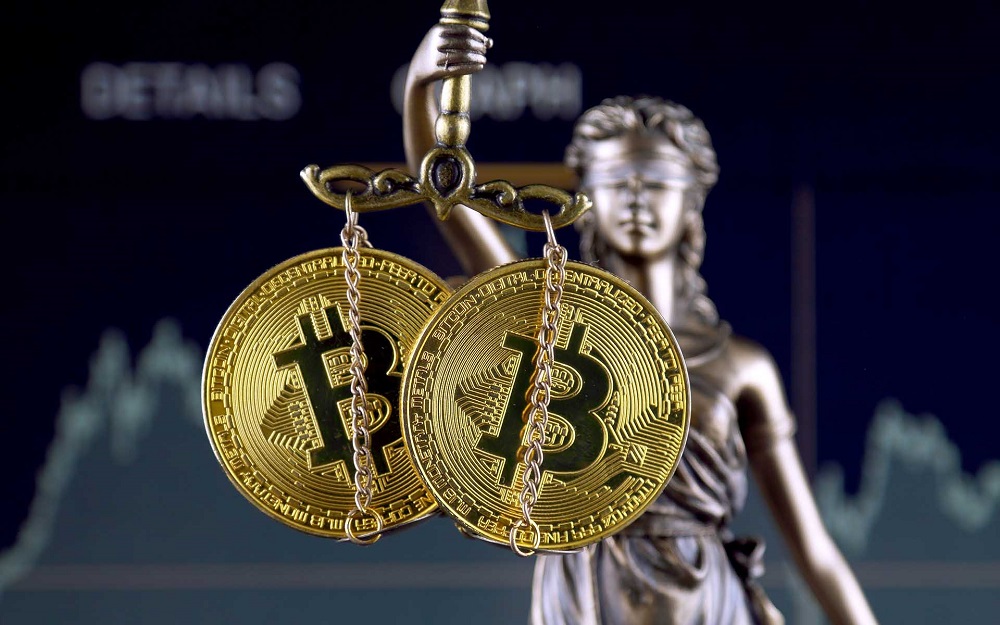As cryptocurrency continues to transform from an investment that was seen as purely speculative to becoming a common feature in balanced portfolios, governments worldwide are still divided on the best approach to regulating this emerging asset class.
The US is yet to develop a clear regulatory framework designed to protect crypto investors and keep these digital assets in check. The Securities and Exchange Commission (SEC) has previously stated that it classifies cryptocurrencies as securities and, therefore, are subject to securities laws.
This begs the question: Does the SEC regulate cryptocurrency? Here’s everything you need to know.
What Are Digital Assets?
A digital asset is a broad term that describes any store of value (asset) that exists in digital format. A crypto asset is a digital asset that utilizes the technology that cryptocurrencies are built on, referred to as a blockchain.
While every cryptocurrency is a crypto asset and every crypto asset is a digital asset, not every digital asset is a crypto asset, and not every crypto asset is a cryptocurrency. You will often come across digital assets that people commonly think of as cryptocurrencies. More often than not, this should not be the case for most of them.
For instance, some utility tokens are not supposed to be used as an investment in the theoretical sense of the word. Many of them are tokenized assets that are supposed to have value but aren’t supposed to be used as currency. Tokenized gold, tokenized securities, and crypto kitties, are examples of tokenized assets used as stores of value but are often used as cryptocurrencies.
Keep in mind that not every digital asset needs to explicitly rely on cryptography, meaning it falls into the broader category of a digital asset. The rule of thumb is that if it is digital and has value, it is classified as a digital asset. Cryptocurrencies, altcoins, stable coins, virtual collectibles, virtual assets, utility tokens, and security tokens are all examples of digital assets.
A digital asset can be differentiated from stock since the latter has strong connections to hard assets and are not inherently digital. Cryptocurrencies like Bitcoin and Ethereum are purely digital assets since they only exist in the virtual world.
Digital Asset Market
Blockchain technology is responsible for the birth of the digital asset market. It was the by-product of upgrading the internet with cryptocurrencies and decentralized technologies. This technology has been widely used to issue and trade Bitcoin, Ethereum, and other cryptocurrencies and offers users a wide range of attractive features to traditional securities issuers wishing to test out the digital asset waters.
The digital asset market presents a unique opportunity for mainstream investors who wish to expand their portfolios and invest in new asset classes.
US Crypto Regulations
Right off the bat, cryptocurrencies are not classified as legal tender. Instead, the Internal Revenue Service (IRS) describes them as a store of value, a unit of account, or a medium of exchange that exists in digital format. Based on this, the federal agency has issued tax guidelines on the same.
The Financial Crimes Enforcement Network (FinCen) also doesn’t consider crypto to be legal tender. Instead, FinCen’s primary focus is on crypto exchanges and defines them as money transmitters. This is based on the fact that crypto tokens are value substitutes for currency.
Crypto regulation is legal for cryptocurrency exchanges. These fall within the scope of the Bank Secrecy Act (BSA). Crypto exchange providers are required to:
- Register with FinCEN
- Implement an anti-money-laundering-and-countering-the-financing-of-terrorism (AML/CFT) program
- Maintain the appropriate records
- Submit periodic reports to the relevant regulatory authorities
Binance, Coinbase, Gemini, and Kraken are a few examples of regulated cryptocurrency exchanges in the US.
SEC Cryptocurrency Regulations

Following the release of the 2017 DAO report, the SEC indicated that it regards several cryptocurrencies, particularly those issued in initial coin offerings (ICOs), as investment securities.
DAO is short for Decentralized Autonomous Organization and was founded in 2016 by a group of developers. They believed that they could place the decision-making power into the hands of an automated system that relied on a crowdsourcing process. That way, the manipulation of investor funds and human error could be eliminated entirely.
The SEC strictly regulates securities trading. As a result, any individual selling, issuing, or even trading crypto tokens could be unwittingly violating investment laws. Technologies and trends in the blockchain space may change quickly.
The laws governing securities do not. Ripple, for instance, is currently elbow-deep in litigation over its XRP token. The company continued selling its XRP token even after the SEC’s warning. Several ICO firms have had to pay punitive court-mandated fines or opted to settle out of court.
Digital Assets and ESG Goals – The Role of the SEC
In addition to traditional regulation, there are three principal ways in which the SEC could use its oversight role in supporting the environmental, social, and governance (ESG) goals of investors.
SEC Blockchain Regulation
When an investor buys, sells, or otherwise transfers a digital asset, information about that transaction is recorded on the blockchain. Miners validate or “mine” those transactions by performing complex cryptographic calculations to ensure that those particular transactions are not double-spent or counterfeited.
The downside to this is—the mining process is energy-intensive and uses a significant amount of electricity. The SEC could require companies to migrate their digital assets to environment-friendly technologies.
Investor Protection
With digital assets under the jurisdiction of securities laws, the SEC would be able to address the rampant abuses within the digital asset market. It would allow the SEC to deal with abuses related to asset valuation through:
- Accounting rules
- Capital requirements for asset custody
- Fraud prevention and anti-data manipulation rules
- Government-regulated data sources
- Information disclosure requirements
- Information technology mandates
- Market access
- Securities Investor Protection Corporation (SIPC) insurance for up to $500,000
In addition to these requirements, the SEC could make listing standards on digital assets mandatory to protect investors.
Prevention of Tax Evasion, Money Laundering, and Criminal Activity
There’s a growing trend of digital assets being used for criminal activities, including tax evasion, money laundering, and criminal activity. Cryptocurrencies like Bitcoin gained notoriety for their ability to be used in the purchase of illicit products and services anonymously on the dark web.
By the SEC regulating cryptocurrency, they would be able to make it mandatory for US-based crypto brokers trading in digital assets to comply with various tax reporting and AML laws. Their failure to comply would result in license revocation.
Need help from a legal expert? Chat online with a Laws101.com attorney today.
